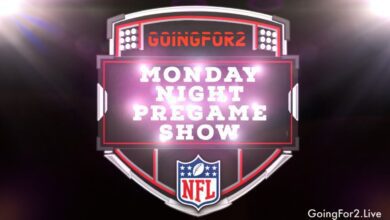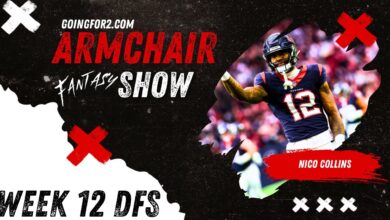1962 to 2020: Football in Fantasy Sports

For sports fans in the United States, autumn isn’t just a time to start raking leaves and preparing for a Thanksgiving meal. Sundays in autumn, in particular, are associated with one of the country’s most beloved sports: football.
A Long Tradition
For over one hundred years, the NFL has been pitting America’s top football talents against one another. Today, the league is the most lucrative in the US and is ranked among European football and boxing as one of the world’s most profitable sporting enterprises.
Today, each NFL franchise averages around $3 billion in value. The Dallas Cowboys and the New England Patriots top the charts in terms of revenue and player salary. It’s no surprise that both enterprises also have the largest fanbases.
When it comes to participating with a favorite team, fans will go the distance no matter the sport. In the US, NFL fans translate their love by packing into stadiums, wearing regalia from the gift store, and wagering on their team’s odds—whether real or fantasy.
An Indelible Link To Sports Betting
Legally, both sports betting and fantasy sports providers are clumped under gaming laws. In the US, legal definitions cover three categories: sports betting and fantasy sports, poker, and all other casino games.
This means that sports betting and real-money fantasy sports providers have only slowly entered the public since a 2018 Supreme Court ruling that allowed states to begin articulating their own regulations regarding gaming laws.
As the US pushes for expanded sports betting options, fantasy sports providers continue to deliver a plethora of extra football action for diehard fans. At the moment, sites that offer NFL picks and insights provide links to sports betting sites alongside fantasy providers like FanDuel and DraftKings.
But how did fantasy sports balloon to stand beside an industry as prolific as sports betting?

Athletic Imagination
Athletic prowess has been celebrated from the beginning of mankind. What was once a fight to stay alive transformed into a celebration of the human form and strength. East to west, history abounds with tales of great physical feats and the glory offered to those who could overachieve.
Despite the adoration afforded to these athletes, their numbers are few and far between. When it comes to mankind’s earliest iterations of athletic leagues and performance, a crew of official judges, fans, and betting pools were never far behind.
In the NFL specifically, players like Mike Ditka and Curly Lambeau managed to recycle their careers into successful stints as coaches and coordinators after retirement, but the sport wouldn’t exist without its die-hard fans.
From the first Olympic Games to the 2020 Super Bowl in Miami, the vast majority of sports participants are spectators. Some even watch and study enough of their sport to become pundits like sports commentators and analysts.
Since 1962, fantasy sports has been an exciting part of this fan participation. Also known as ‘roto’ to some, fantasy leagues in American football got their start at a casual New York City gathering hosted by part-owner of the Oakland Raiders.

New York City, 1962
The first fantasy league was created by part-owner Bill Winkenbach and a group of friends while staying at a hotel in New York City. The fantasy league was titled GOPPPL (Greater Oakland Professional Pigskin Prognosticators League).
However, this wasn’t Winkenbach’s original foray into fantasy sports. Only a few years earlier, he’d begun a fantasy golf league with friends. And, around the same time, the first fantasy baseball leagues were cropping up in Harvard’s Sociology department.
Winkenbach and company decided to fake draft real athletes still playing in the NFL and AFL (which wouldn’t unite into the NFL for another eight years). Following the fantasy draft, the GOPPPL would closely follow each player’s real performance in games.
From there, the GOPPPL would allocate points based on the total performance of every team from previous seasons. The setup was simple but brilliant. Because it was based on the actual record of each player, the GOPPPL shifted organically and couldn’t be predicted or manipulated by participants.
In short, it took the aspects of the game that fans like the most (sport and on-the-field dynamics) and divested the powers of strategy in the hands of everyday fans instead of, say, a Ditka or Lambeau.
Rotisserie Leagues
Legends abound about who, specifically, is responsible for the modern iteration of the fantasy sports league. Most accredit the naming of the industry as ‘rotisserie’ or ‘roto’ based on where writer and editor Daniel Okrent was dining when he solidified his idea.
Regardless, Okrent’s version of fantasy sports upped the stakes as he began using real-time statistics to inform his baseball fantasy league. The reason the world remembers Okrent’s version of fantasy is likely related to his position in the media and a fortunately-timed MLB strike in 1981.
As players on strike began to play fantasy leagues that they were part of, the Rotisserie League gained momentum. In 1982, a statistical analysis tool created by Bill James (known as the Bill James Abstract) brought sports statistics into American homes. By 1984, Okrent and other founders had released a guidebook.
The Modern DFS Provider
Today, the NFL utilizes fantasy leagues as a primary form of advertising. Online platforms have revolutionized the availability of fantasy leagues and have also helped to bring the hobby home to many who may have found fantasy leagues confusing or too stats-heavy.
It’s estimated that over 19 million people participate in an NFL fantasy league each season. In 2018, a study by Fantasy Sports & Gaming Association found that 75% of all sports bettors participated in fantasy sports. Of all fantasy sports participants, 78% choose to play in a fantasy football league.
These statistics show that fantasy league play is closely tied to actual results in the NFL. While obvious, this fact supports the idea that fantasy leagues are how fans insert themselves into their beloved sport.
Fantasy sports, much like sports betting, bring fans close to the action by upping the stakes. When there is real (or virtual) money on the line, the need for a win is more potent than just watching a game with friends.





